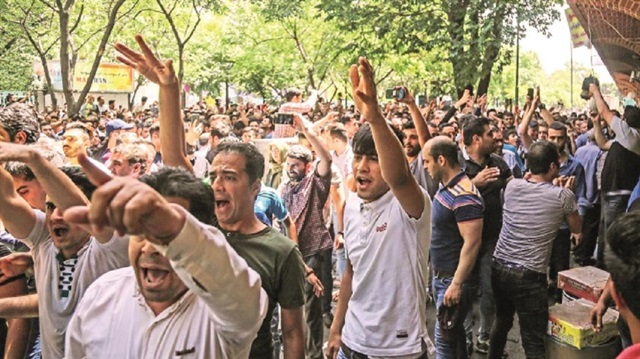
The US is trying to lead Iran to chaos by re-imposing sanctions after breaking off the nuclear deal
The goal of U.S. economic sanctions against Iran is a great threat for the country. In the first phase, the U.S. wants to lead Iran into a state of introversion and for it to retreat from regions such as Syria, Lebanon, Iraq, Palestine and Yemen.
If the sanctions are long-term it could jeopardize Iran policies. The most serious threat is triggering an atmosphere of chaos, which would lead to a division of the country by causing financial difficulties and increasing unemployment rates.
The sanctions target Tehran's acquisition of U.S. dollars, the trade of precious metals, transactions related to Iran's rial, activities relating to Iran's sovereign debt, and the country's automotive sector.
Stating that the Trump administration was using Iran as domestic political leverage ahead of November's midterm elections in the states, Iranian President Hassan Rouhani said, "They want to launch psychological warfare against the Iranian nation.
The first round of the U.S. sanctions were re-imposed early Tuesday under an executive order, and President Donald Trump, who defied Washington’s allies, pledged that companies doing business with Tehran would be barred from doing business with the United States.
Iran dismissed a last-minute offer from the Trump administration for talks, saying it could not negotiate while Washington had reneged on a 2015 deal to lift sanctions in return for curbs on Iran’s nuclear program.
In May, Trump withdrew the U.S. from a nuclear deal, which was signed in 2015 between Iran and the P5+1 group of nations (the five permanent members of the UN Security Council plus Germany).
The nuclear deal places restrictions on Iran’s nuclear program in exchange for billions of dollars in sanctions relief.
This unpredictable attempt is being evaluated as the beginning of a process that needs to be followed carefully. It is emphasized that Iran should take measures to protect its integrity and deliver calming and uniting messages to its nation and neighbors, because the region cannot overcome another war after those in Syria and Iraq.
On the other hand, the PKK-linked and U.S.-backed the Kurdistan Free Life Party (PJAK) terror organization is another threat Iran may have to deal with, as terrorists could take this chaos as an opportunity to ramp up their attacks.





